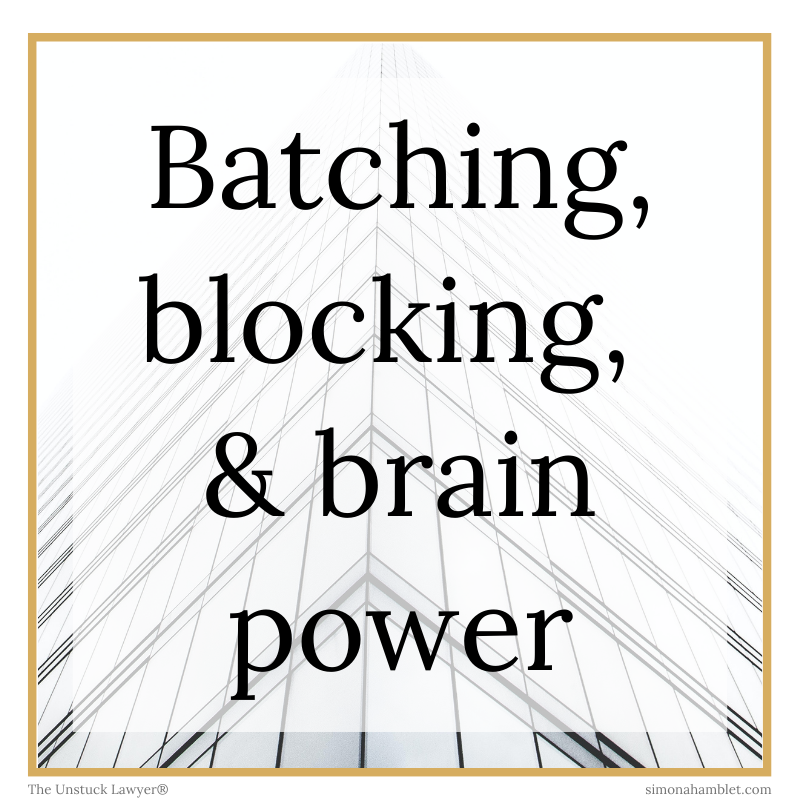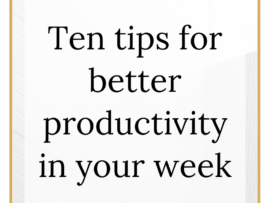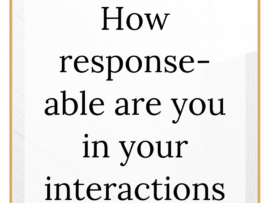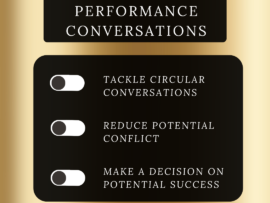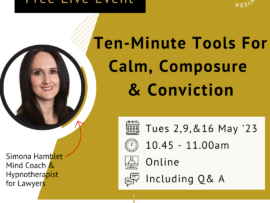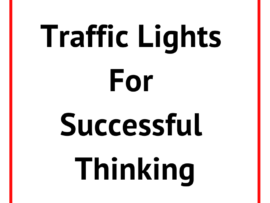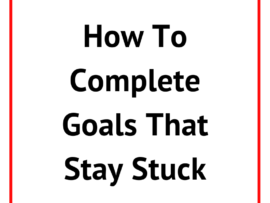How time blocking and batching helps brain power
Why does time blocking and batching help with brain power, and save us time in unexpected ways?
Fee-earners, and law firm owners, can understandably be resistant to the idea of time blocking or batching (myself included). And whilst there are definitely some areas of work that this will lend itself to the method more easily. Once implemented, and tweaked, many of the worries and anticipated disasters do not come to pass.
However, given the level of concern, why take the risk of trying out this method? Here are some of the known benefits. But first, let us start with what I mean by these terms:
Time-blocking – a period of time that is put into the diary AND is protected from interruptions (including sound or visual notifications) AND protected from being moved around. They typically last 20 minutes to 60 minutes, often twice per day for batching, combined with two longer sessions of 60-120 minutes per week for deep-work.
Batching – tackling one type of task during one period of time. This might include emails, phone calls, billing or other financial tasks, creating shorter social media posts, and certain shorter meetings ie regular 1-2-1’s.
So how do these save time and brain power?
Time – the saving of time is often already well understood. Every time we are distracted by a notification (whether we tackle it or not), or we switch between tasks. We take up time physically, ie looking at the device, opening new applications, and saving documents. In addition, we lose time familiarising ourselves with the new task, and then often lose our train of thought and flow on the old task, again adding time to each task.
Brain power – we know that we typically make better decisions earlier in a busy day, likewise we process difficult tasks more easily, and tackle tasks at a better speed than in the evening, or at the end of the working week, when we are ‘brain tired’. Our brains use up energy in the same way our body does. Every time we hear a notification, or switch tasks, or ruminate on a to-do, or make more decisions, our brain switches regions and uses up energy doing so.
Therefore the benefit is that we use up less energy. This means we have more brain power for later in the day or week. By staying focused on one type of task, without jumping around, or being distracted by notifications. Plus the removal of us continuously thinking about ‘when will I get around to doing x’ or the internal dialogue of ‘I must remember to email x’. We save that energy for more important things.
Saving energy may also lead to us being able to do more during the day, yet leave earlier because we have more time AND since we can tackle tasks quicker, given we are less ‘brain’-tired’, we are more productive.
I acknowledge for some it may need a little time to become accustomed to this approach and feel safe in batching emails and calls (if it feels too hard do get in touch).
A reminder that, if it helps, our unconscious mind treats change (the unknown) as a threat, even if it could be better. Perhaps try it and tweak it before deciding it does not work. Clients who have used these methods have found it beneficial. They have also given feedback that they soon noticed the negative impact when they dropped the habit for a week or two, and therefore quickly picked it up again.
Try it for four to six weeks and see what happens. Any questions, do let me know.
Simona
